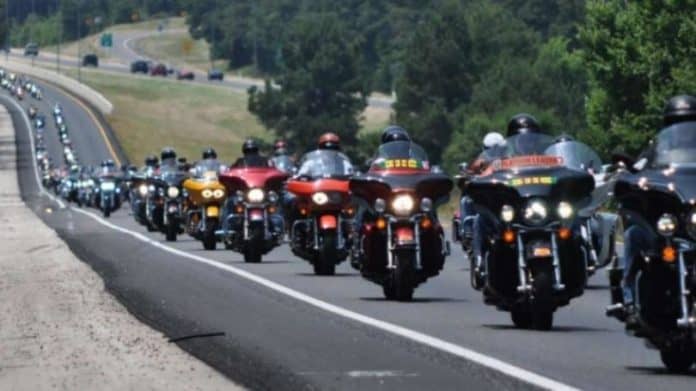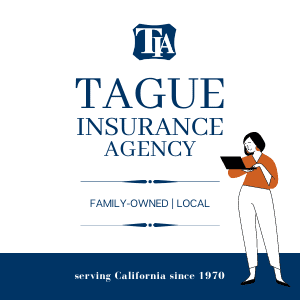By Bob Ashmore
Wednesday May 15th, 2018, 7:00 am the engine on my bike is warm. We are ready to start out across the roads of America. I have completed the same mission twice before but this time I am part of about 20 others, or team, of yellow hated folks who will ride out in front of 600 other motorcyclists to set up the fuel stops. The main pack of riders coming in for fuel every 100 miles or so. Generally, we fuel the entire 600 motorcyclists within 30 to 40 minutes. We take a short break and the fuel team heads out again to the next station. We ride approximately 300 or so miles a day for 10 days to get to the Vietnam Wall Memorial in Washington DC.
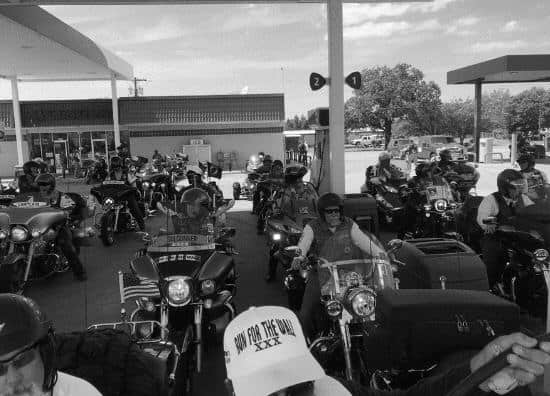

You may be asking “Why do we do this”? It is a simple answer, “To ride for those who can’t”.
That is our mission statement. Who are those who can’t ride? There are 58,000+ names on the Vietnam Wall Memorial and those Brothers and Sisters are who we ride in remembrance of. I personally knew one of the guys whose name is on the wall. Robert (Fred) Chacon. He was a neighborhood friend.
Every year the ‘Run For The Wall’s group of motorcyclist ride from Ontario California to the Vietnam Wall Memorial in Washington DC, to honor those who can’t ride. This ride takes 10 days and on Memorial day we are all gathered together at the wall. The folks on the ‘Run For The Wall’ usually are strangers when we start the Run but after 10 days you become friends. Close friends.
It was the same when we arrived in Vietnam some 40+ years earlier. We were young and dumb, we got off the airplane and didn’t know anyone. After you had been in-country for a week you had begun warming up to folks from all over the United States. It was the same on the ‘Run For The Wall’. You meet folks and befriend people from all over the United States. The stories you heard back when you were in Vietnam were stories about girlfriends, high schools, parents and dogs. The ‘Run For The Wall’ folks all had stories as well, but the stories I cherished most were those told by Veterans who had been ‘n-country and knew what the sounds were, knew what the smells were and knew what our duty was. We were Americans and we were there because we believed in the Red, White and Blue. Yes, some were drafted and yes there is still hatred by some for being drafted. Nonetheless the majority of us, well, you might say some of us, didn’t know the political issues of the day and we read about the protests but, for the most part, were patriotic young soldiers doing the duty we were called there for.
It was late summer in 1970. I had just spent a year and a half in Okinawa Japan. I was a Spec 5, a specialist in the Army Security agency. I was looking forward to my next duty station in the states.

I drove from San Bernardino, California across the US in my new (‘69) CJ5 Jeep. My orders were to report to my company at Ft. Bragg, NC. Upon turning my orders into the clerk in my new company office, a very large, Sargent Major, opened his office door and yelled out “who’s jeep is that parked outside?” “Mine Sargent”, I answered. The Sargent Major immediately shouted, “either get that f’en peace symbol off your Jeep or get it off of this base”. I hesitated, and he yelled out “Do you hear me specialist?” I reported back, “Yes Sargent”. I ran outside and removed the decal from the Jeep and came back in the office. The clerk just shook his head and told me where my barracks were and where to report for my first company formation in the morning.
Ft. Bragg was home of the ‘Green Beret’, the elite military group that turned all of Ft. Bragg, Green Beret or not, into a “We gotta live up to them” type of place. Our 1st Sargent wanted us to have spit shined boots, shiny belt buckles and creases in all the right places on our khaki’s or fatigue pants. Needless to say, this was not making me a happy camper at all. It was like playing Army. Okinawa had spoiled me, and I wanted out of this crap hole as soon as possible.
After a week I was asking how I could get transferred out of Ft. Bragg and the only answer I would get back was “Volunteer for Vietnam”. So, I kept shining my boots, and polishing my brass, all while ‘playing Army’ for about a month or two, then I had had enough. It was heavy on my mind, but I entered the same door that I originally came into the company and asked the company clerk for the form to request a transfer. The company clerk got the form, shook his head, and went back to his typewriter. If my memory serves me correctly, there were three blanks to input your requested station. I put down Hawaii, Germany and Vietnam in that order. When I handed it back to the company clerk he began laughing out loud until the 1st Sgt opened his door and looked out at us. The Company clerk stopped laughing went back to his typewriter and I headed for the entrance.
In a week I had my orders and then, after a 30-day leave, I was headed for Oakland California to board a flight to Vietnam. Oh, by the way, the plane did land in Hawaii to refuel and head on toward Vietnam. We never even got off the jet. That is the only time I have ever seen Hawaii in my life.
After approximately 17 hours of airtime, the passenger seats on the civilian jet were beginning to be very uncomfortable, and all of those on board were complaining. The stewardess’s remained calm but as we reached our destination they had a look of concern on their faces. We landed at the Tan Son Nhut (sp?) Airbase near Saigon. The Stewardesses hurried us off the plane and hoped to get back in the air without any issues. Later on in my stay in Vietnam I heard that there had been sniper fire on the transport airline jets and I am sure this was the concern these stewardesses were having.
It was the beginning of November, but it was hot and humid. I was told that the humidity was better than a monsoon. I had no idea what a real monsoon was, about three days later, when it was raining so hard a person could drown by simply looking toward the sky. Oh, and it was not monsoon season at all. I was waiting for an in-country assignment when about five days had gone by, then I received orders for Cantho, Vietnam. I had no idea where Cantho was. My thoughts were “Oh God, No! Not the Northern end of South Vietnam”! I had heard that the north was a real hell hole, so, I just hoped.
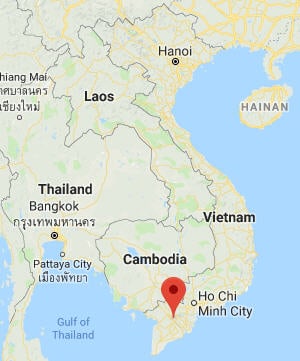
The form in my hands stated I would be assigned to the 335th Radio Research Group and discovered that Cantho was at the Southern end of Vietnam about 60 klicks (approx. 40 miles) southeast of the Cambodian border on the Song Hua River in the Mekong Delta. Cantho was near the Song Hua’s exit into the South China Sea. Four other ASA new guys (all of us would be referred to as NUGs for some time) boarded a Canadian built Caribou. The U.S. Army purchased 159 of these aircraft and they served their purpose well as a tactical transport aircraft. After flying south for an hour or so the Caribou made a landing approach and came in for a perfect landing.
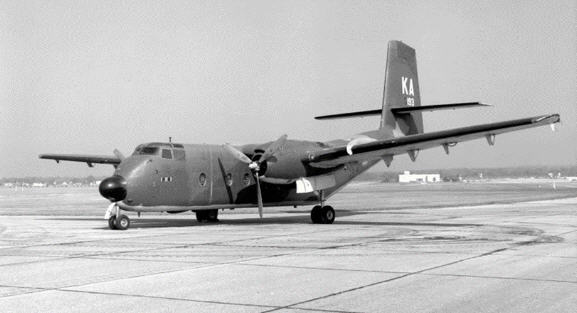
My MOS in the Army was 05H-20. The MOS stood for Military Occupational Specialty and the 05H-20 was the actual job title you were trained for. I was a Morse Intercept Operator. Yup you read it right. I copied Morse code. I would tell folks on the ‘Run For The Wall’ what I did, and they would give me a blank stare as if they could not believe what I had just told them. No, I would say, I didn’t use a small transmitting key and send Morse Code like you would see in the old western movies I would have a pair of head phones dialing on an R390 radio receiver to listen for Morse Code being transmitted by the VC. The next question would always be “Why?” After shaking my head much like my old company clerk would do, I would say, “to track enemy locations and transmissions using direction finding equipment.” Normally they would say “Oh” and begin talking about a multitude of other subjects. Many of the folks with the ,Run For The Wall’ group were combat Veterans and had a whole different story than I had. No I was not a ‘combat’ Veteran but I still had a story and am proud to have served in Vietnam.
I was speaking with one of the ‘Run For The Wall’ riders who had a patch over his right eye, and I decided to ask him how he lost the sight of his eye. He said, “In Vietnam”. I proceeded to ask him how that had happened, and he explained that during a rocket attack he lifted his head at the wrong time and caught a piece of shrapnel in his eye. He chuckled and said “But that was how I got to come home early”. I was shaking my head when he continued with another story,
“I was on point, which is a dangerous position to be in when you are with a squad of soldiers who may or may not know who to fire at when a fire fight erupts”. He said he was slowly walking through the tall grass and came into an opening with about 20 North Vietnamese Army (NVA) regulars crouched around. They had their weapons across their knees or one hand on them with the muzzle end pointed skyward. The look on their face was as surprised as I was. I opened up on them and then turned and ran as fast as I could back to my squad yelling VC, VC, VC in the grass. After the crazy firing of weapons at tall grass we found one dead VC. I don’t know if it was my original shots fired or another who got him. He continued, “There were too many instances where you just didn’t know when it was going to be them or you. So, I was thankful for that shrapnel in the eye. I don’t even remember what happened after I was hit. I just remember waking up in a field hospital and a beautiful nurse asking if I was feeling ok. I thought I was in Heaven. I was flown back home and spent a few weeks in another recovery hospital in Hawaii, I received a purple heart and a medical discharge, and they flew me back home”.
I did not even begin to tell him about my time in-country but later I heard other stories that were not as harrowing and realized that the war in Vietnam was different for every man or woman in-country.
The thing about the ‘Run For The Wall’, was that during the hours of muffled motorcycle engine noise on the freeways you had time to think about your own time in Vietnam and the stories you picked up along the way and that, yes, you were a Veteran but the ride was not about “You”. It was about those who could not ride and that became crystal clear as you got nearer and nearer to DC. As that realization became clear, a mental healing took place and we all realized that we were all a part of something bigger than ourselves. That is why we ride.
Now back to my story. After about an hour’s flight we landed at the Cantho Air field north of the City and disembarked. It was November 1970. The ground was muddy with a horrible smell in the air. My expectations were that we would be assigned a barrack and then report to work the next day. Not the case at all. We boarded into the back of a Duce and a half (two-and-a-half-ton truck) and exited the Army air base, then headed south on a road crowded with bicycles, jeeps, pedestrians and many motorcycles with carts in tow. Some of these carts were designed so that you could sit in them while the driver was in front. The nicknames of these unique vehicles were “Cycaloe’s” and they were like mini taxies.
The smell as we reached the end of our short drive was overwhelming, there was a garbage pile draining into a creek with who knows what in it, we pulled into a muddy clearing. There were latrine’s set up next to a four-story building. There was wire (called concertina wire) hung from the second floor of the building and draped down on the street side to a metal fence which enveloped the building. On the inside of the fence was a stack of sandbags. This dilapidated old building turned out to be our barracks (housing) for the next year in Vietnam.
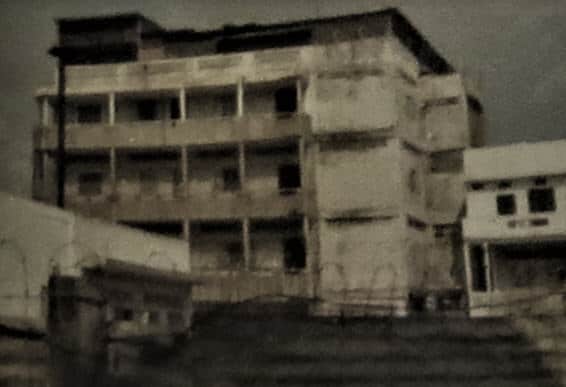
There was no potable water in the building, however, there was a trailer with a 500-gallon tank on it that stored drinking water with a number of outlets/faucets. The electricity in the building ran off of a noisy generator sitting on another trailer parked next to the building. Nonetheless we were assigned a room that held four of us with two bunk beds in each room and four lockers. I quickly noticed small middle-aged Vietnamese women dressed in loose clothing looking much like pajamas. These were our ‘hooch maids’. Wow, we had actual maids! These women would not look at us eye to eye. They had a self-conscious demeanor and giggled slightly when they were around other maids, running about with brooms, rags and pails of soapy water. I was totally in shock, as were all of the NUGs. I was beginning to discover many things about Vietnam that were not in the nightly news back home.
There was a small screened in covered area on top of the building that had been turned into a card and game playing setting. There was a reel-to-reel tape player playing anti-war music, seemingly nonstop. I think that after hearing the words of “We gotta Get Out of This Place” by The Animals, over and over, we could sing along with ease. There was plenty of free warm beer and strange soft drinks (I think from Australia) sitting on a wooden pallet and you could buy other types of alcohol that had been purchased from the PX on Cantho Air Field. Occasionally there would be ice and then there was cold beer available. I spent many hours in this area playing Stratego, Poker, Monopoly, Checkers, Chess and learned to consume more beer than I should have. One of the dangers we faced was traversing from the makeshift club on the top floor, down four flights of stairs, to go outside to the latrines. Once in a seldom while the indoor plumbing would work and there was a bathroom on each floor, however that was seldom.
I also learned that Cantho’s central bar district was less than a mile from where we were being housed. It was walking distance and there were many strange sites to see during the walk to town. The town was on limits until 6:00 pm. This curfew was established so that you were not outside in the open at night. I believe this curfew had been set years earlier due to the night attacks by the VC. None the less, we would start our drinking downtown and end up our drinking in our barracks.
On one occasion a group of us were walking/stumbling back to the building. A small canal we passed by had a narrow bridge over it. The bridge had a hut mid span. We saw an old ‘papa-sahn’ walking out to the hut, squat down and lo and behold crap was dropping into the canal. Then, a swarm of fish would swim to the crap in the water and devour it. There were many people fishing in this Canal. This was a quick lesson on what not to eat in the down town area of Cantho. ‘No fishy’ for me thank you.
The Song Hua River was visible from the top of the barracks building and we would end up on top looking out over the landscape sometimes smoking locally grown weed/marijuana when no officers or Sargent’s were around, although we all suspected they smoked also. I would be sitting and thinking, “wonder where the war is”?
I heard another ‘Run for The Wall’ rider tell his story. It was so intense, my grimaced response must have said a lot. His story to the best of my memory went like this.
“There had been some trouble close to a Montagnard ‘Ville’, and I was looking towards that village when I heard a familiar noise.” [The term Montagnard was used to express a group of people who lived in the mountains of Vietnam. Normally when you hear Motagnard spoken it sounds much like “mountain yard” and that is what most Viet Vets know them by. The term ‘Ville’ was used in place of ‘village’. Nonetheless, back to my friends’ story.] “It was the soft “crump” of a 122mm rocket launching in the distance. There are several survival skills that a person needs to learn in Vietnam. One of the first is the sound a rocket makes coming off the launcher. For a 122, you [usually] have [about] seven seconds to get hidden before impact. If you don’t hear it until its arrival scream, you have a little over a second. Needless to say, it is best to give yourself the most time. This time I did and it was behind some sandbags. Almost without thinking about it I yelled, “incoming,” but I wasn’t the only one that had heard the launch. A few seconds later there was a short scream, and an impact just inside the wire at the bottom of the hill about three hundred meters in front of me. Almost immediately there was a second impact a little closer to me, followed by the sound of another launch. The third one hit about half way up the hill in a direct line towards me. I was out of there!
My first instinct was to get to my M16 to fire back, but I was ammo-chief now. Our guns began a counter-battery fire, so I went around to see if anyone needed any ammo. I had never felt so helpless in Vietnam. There was really nothing I could do, so I went to see if I could spot the launch area, but there were no more rounds fired that I could see. Soon the guns stood down, and people returned to the day’s routine. I gathered my section up, and we replenished the gun pits. The adrenaline took about four hours to run its course. I was too short for this stuff, [‘short’ meant you didn’t have much time left in Vietnam].
I would get a month’s drop on my extension. I would be home two weeks after this incident. Between this day, and my leaving, a Cobra gun ship would be shot down near the hill, and there would be two more rockets fired at us three days before I left. They would land outside the wire, but it was still too close, and the adrenaline would rush through me again. Forty +/- years later and I still, sometimes, hear that soft “crump” in the distance.
Yes we ‘Run For The Wall’ for a number of reasons, primarily to honor those who did not come home. Yet there is a strong comradery that helps us all to remember what we did in Vietnam. There is a tendency to think of the Vietnam War as the one that we lost. I think it is the war that a lot of us young kids became Men.


